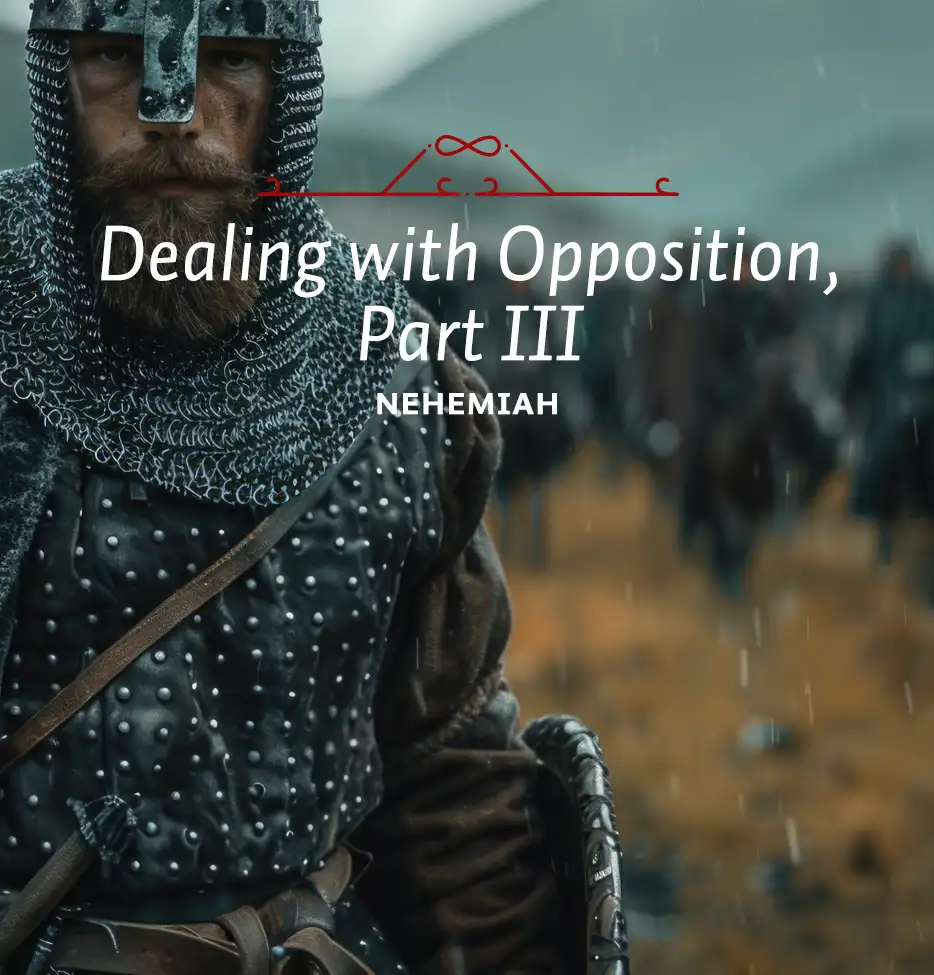Isn’t dialogue good? Isn’t it always better to talk than to fight, to keep the lines of communication open? Isn’t refusal to talk to our opponents always unnecessarily and unreasonably belligerent? Isn’t there a time to let bygones be bygones, to bury the hatchet? What possible reason can there be for refusing to talk once the election is over or the job is done?
Ah, but that was just the problem. The job was not done. It was almost done. But the gates remained, and until they were completed the entire great project was in jeopardy. Nehemiah knew this, and for that reason—at least this was one reason—he declined the invitation. What magnificent, single-minded concentration! And what a classic reply! “I am carrying on a great project and cannot go down. Why should the work stop while I leave it and go down to you?” Nehemiah reports that Sanballat and Geshem sent him the same message four times and that each time he gave them the same answer.
There are two characteristics of leadership that are particularly noticeable in this reply.
First, a leader must know how to say “No.” Some people can’t seem to do that. Whether because of their own insecurity, an unbalanced desire always to please other people or something else, they break down and give in, particularly if the request is repeated. Nehemiah said “No” four times. Chuck Swindoll says, “One of the marks of maturity is the ability to say no without explanation.”1
In what circumstances should I say “No”? Answer: When I am faced by temptation. When I am being asked to compromise the truth or morality. When a lesser good threatens to undermine a higher one. To whom should I say “No”? Answer: To my children, quite often. To enemies. To friends who would distract me from God’s call. To Satan. When should I say “No”? Answer: Whenever necessary, and far more often than I do. We should say “No” often.
The second quality of leadership noticeable in Nehemiah’s reply to Sanballat and Geshem was his practical wisdom. We see it in how he receives the message and in how he replies to it. He was not taken in, for one thing. Although the communication sounded plausible, Nehemiah knew that the governors were actually scheming to harm him. He says so in verse 2. Again, although he knew their intent, Nehemiah nevertheless did not unnecessarily antagonize them. He did not denounce them for their perfidy. He merely said that he was too busy to go down to the plain of Ono.
After the fourth communication to Nehemiah and his fourth refusal (v. 4), Sanballat must have sensed that his anxiety was showing and that something else was required. So he resorted to innuendo. Here is how Nehemiah tells it. “Then, the fifth time, Sanballat sent his aide to me with the same message, and in his hand was an unsealed letter in which was written: “It is reported among the nations—and Geshem says it is true—that you and the Jews are planning to revolt, and therefore you are building the wall. Moreover, according to these reports you are about to become their king and have even appointed prophets to make this proclamation about you in Jerusalem: ‘There is a king in Judah!’ Now this report will get back to the king; so come, let us confer together” (vv. 5-7).
We have words for this. It is political “hard ball.”
It was not new in substance, of course. It was a revival of the charge made earlier: “What is this you are doing? . . . Are you rebelling against the king?” (Neh. 2:19). What made it new (and “dirty”) was the open letter that suggested it. An open letter would have been read scores of times during its progress from Samaria to Jerusalem, and the message would already have been repeated widely by the time Nehemiah received the accusation. In other words, the damage was already done.






